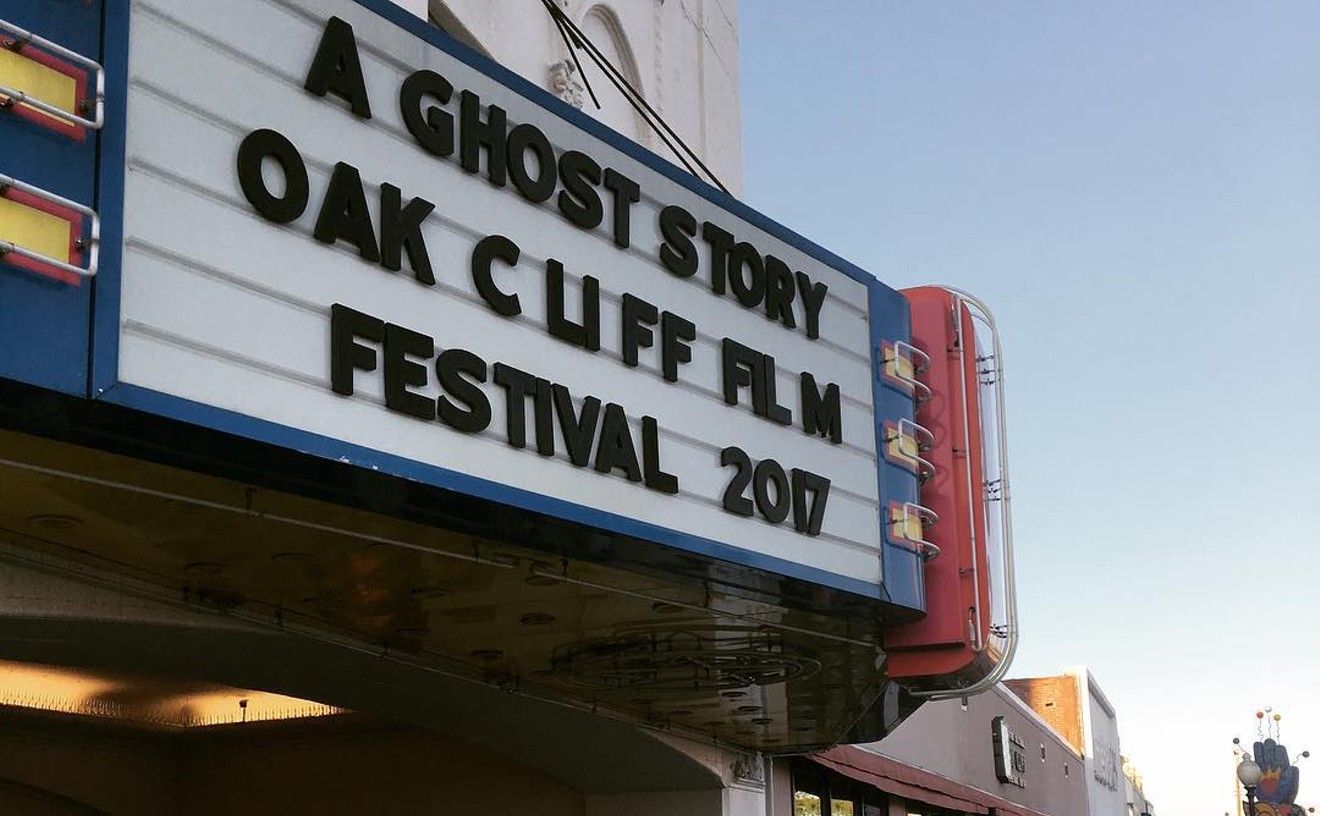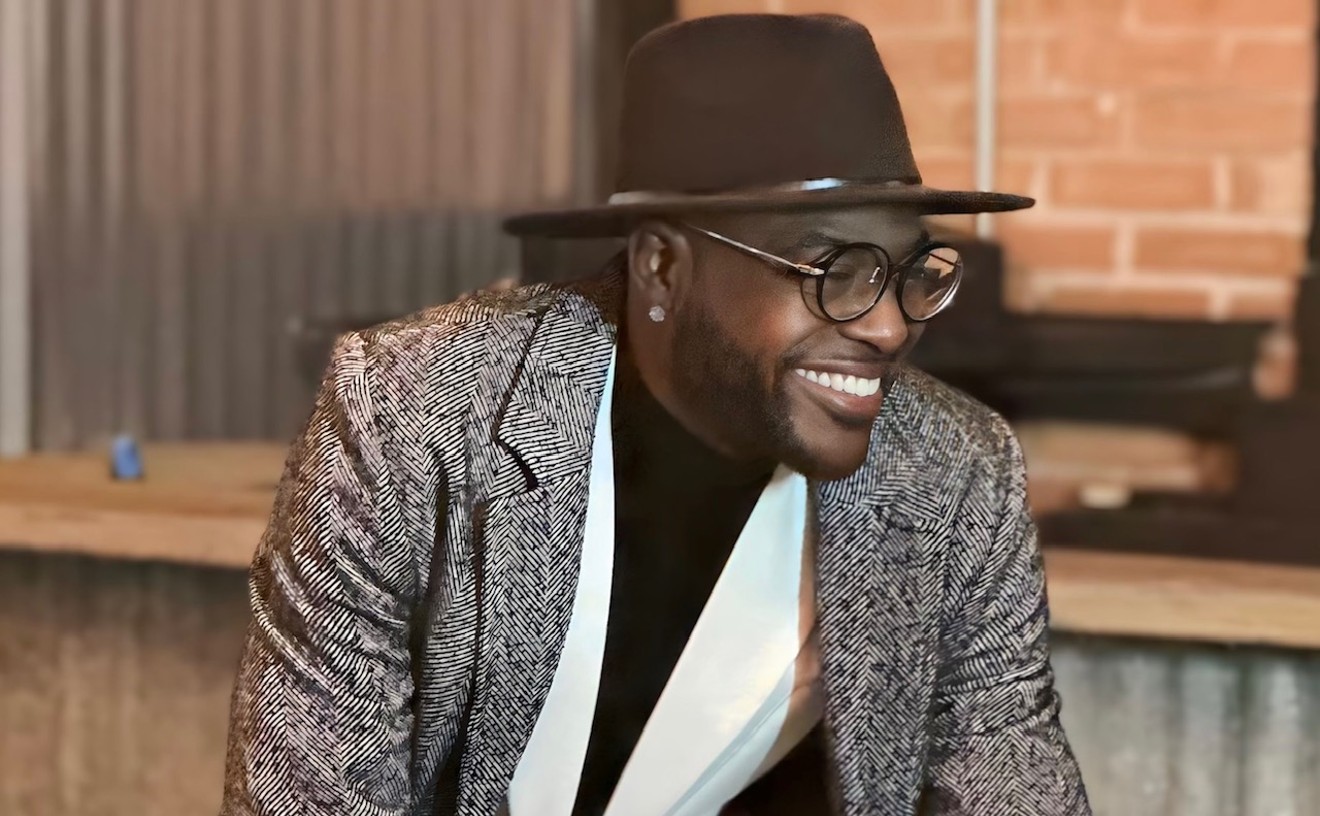Kevin Sullivan remembers the exact moment when he realized the Dallas Mavericks no longer mattered, at least to the rest of the world. He recalls the moment in detail, as you might remember the music playing during a breakup.
It occurred during the All-Star Game in 1993, which was held in Salt Lake City. It was the first year the National Basketball Association's league office set up its fan-interactive NBA Jam Session event, where kids could take free throws, play basketball video games, run through obstacle courses, even pose for their own trading cards. Strewn throughout the convention center in Salt Lake were giant reproductions of trading cards, posters featuring the best and best-known players in the league. Team logos adorned the walls, filling every inch of free space.
"And there wasn't a Maverick logo or a picture of a player anywhere in the convention center," recalls Sullivan, then the man charged with Mavericks public relations. To find his team absent from one of the league's proudest moments was a slap in the face, a punch in the stomach, a...well, you can only imagine how it felt. And the 1992-'93 season--when the Mavericks won only 11 games, when first-round draft pick Jim Jackson held out till March, when the laughingstock known as Quinn Buckner was hired--was just the beginning of the nightmare.
"I just felt we had fallen off the map, going to the All-Star Game with no representation," Sullivan says. "Having everybody walk up to me like I was a cancer patient, putting their arm around me and telling me to hang in there. At the time, I said, 'Hey, I'm fine, I love my job, don't feel sorry for me. There are plenty other people worse off than me.' But it seemed at the time so bleak." That was the first time; it would not be the last.
Still, at this very moment, the 38-year-old Sullivan, whose business card identifies him as the Mavericks' vice president of communications, should be in the middle of coordinating Mavericks radio and television operations. He should be gearing up for the Mavericks' November 17 game against the world-champ Chicago Bulls.
But there is a lock-out, and it's likely the NBA will not resume play until December or, more likely, early 1999.
And besides, this interview is Kevin Sullivan's last official act as a Dallas Mavericks employee.
Just last night, with his wife and their 12-year-old son, Terry, Sullivan finished cleaning out his office, gathering 18 years' worth of belongings into boxes and carrying them out to his car. There were the old photos, the handwritten game logs, the collected detritus of nearly two decades' worth of dedication to an NBA franchise that hired a kid from Purdue University in 1980 as one of its very first employees. With his departure, Sullivan is the last of the original Mavericks employees to bid farewell. He has endured as no man should.
If you think it is hard being a Dallas Mavericks fan, imagine being a lifelong Mavericks employee--and then imagine you are the guy stuck between cynical, discouraged writers who sulk on the Mavericks beat and the overpaid, undertalented players who have defamed a once-coulda-been-great franchise. Sullivan has been stuck in the middle so long, the spirit should have been crushed right out of him.
Yet he never once lost faith in the home team, never once uttered a disparaging word about the Mavericks. And he has never made it difficult for journalists to do their jobs. Indeed, he is so beloved that Dale Hansen bid him a kind, graceful farewell at the end of a 10 p.m. newscast last week, telling the viewing audience that if there's a better guy in the pro-sports business than Kevin Sullivan (known as "Sully" to his colleagues), he has never met him. And legend has it that after one press conference, Sullivan got up to ask the assembled reporters if there were any more questions, and somebody shot out: "Yeah, can you go to work for the Cowboys?" There's not a single member of the media who has anything bad to say about him.
But that's not why he's the subject of this column; after all, what's to gain from kissing his ass after he's gone? Rather, Sullivan is the most devout of true believers, a man who utters the phrase "Wait till next year" because he truly expects a better tomorrow; then again, how could he not? He has endured Roy Tarpley's drug suspensions, Mark Aguirre's temper tantrums, the debacle of three J's, the biggest trade in the history of the sport, and the Jim Cleamons-Don Nelson wrestling match of egos. He has lived through a run at the championship and the decline of a franchise. He has withstood lousy draft picks and a year when the Mavericks nearly set the NBA record for futility. He has watched attendance at Reunion Arena dwindle year after humiliating year.
For God's sake, the man has missed only five Dallas Mavericks home games in 18 years. If that alone doesn't deserve a medal, much less a few column inches, then nothing does.
And he is still a fan. Wait till next year, he says repeatedly. And he is not kidding. Never has a man smiled through so much misery.
"I tell people who work for the Mavericks now, who haven't been there very long, what a big deal this team can be and will be again one day," Sullivan says. He wears a straight face. "You always think it's going to get better." Later, he mentions that you have to. Then, it can't get much worse.
The question is not why Sullivan quit the Mavericks now. He says that it was simply time to move on and that he was given a good opportunity to work as director of communications for the Dallas 2012 committee, which is charged with trying to lure the Olympics here. (There's a joke somewhere in there about leaving one losing cause for another, but that's better left to another day.) Rather, one wonders how he lasted so long.
Though he is loath to admit it, the past several years have not been easy ones. He recalls how, in the franchise's first years, he had to explain to people just whom he worked for; during the early 1980s, someone once asked him if the Mavericks were a soccer team or a female basketball team. And throughout much of this decade, he has endured so much grief from fans who demanded to know why so-and-so was traded, just what in the hell Don Nelson was thinking, what in God's name happened to Roy Tarpley, and so on.
There are probably worse gigs in pro sports than working for the Mavericks, but I bet you can't name one.
"Look, I loved it," Sullivan says. "Even when things are going bad, you have to do the job without regard for the performance on the court. If you don't do that, you'll go crazy. It is an emotional roller coaster, and you can't help it. I think I tried to bring a certain passion to my job, and you do ride the waves with the team, but when it comes to doing your job, you have to be focused on what the challenge is. If Jim Jackson's holding out, you can't fall apart and be all depressed and angry and bitter and complain about it. You figure out, 'How can we best get through this?' That's what you do. I always believed in the cause, and that's one of the reasons I stayed."
Sullivan quite literally grew up as a Dallas Maverick. He was one of the first employees hired by then-owner Don Carter and former chief operating officer-general manager Norm Sonju, a kid from Purdue University with a management degree and a rusted-out 1972 Mercury Comet that leaked oil and housed everything he owned. He had been working in Purdue's sports information office when he found out about an expansion team in Dallas in need of an eager kid to work in the public relations office. He interviewed over the phone several times, then flew to Dallas, at his own expense, to interview for the job when he discovered the club was talking to local candidates. That's how much he wanted the gig, and that's why he got it.
His original title was public relations assistant, working under former Channel 4 sports director Allen Stone, though Stone was hired two months after Sullivan. But Stone had little time to bother with the grunt work of keeping game notes or putting together the media guide and dealing with the press. Stone was there for his expertise, to lend the fledgling organization a little fast-track credibility. For a while the kid from Evergreen Park, Illinois, was the PR department.
Sullivan immersed himself in his job, to the point where "it was probably unhealthy," he says now, explaining why he stayed with the team so long. "It was such a big part of my life and more than a job. I loved it. I had a chance to be part of this thing: We're the local NBA team, and I'm in the middle of it. Growing up, dreaming about being the general manager of the Chicago White Sox, traveling with a pro team was a dream come true. Literally."
It is perhaps appropriate that Sullivan's fondest memory of his tenure with the Mavericks is tied to a loss, not a win. He mentions the team's Game Seven loss in the Western Conference Finals to the Los Angeles Lakers on June 4, 1988. It is a date that forever defines this franchise: The Mavericks were one game away from going to the NBA Finals--and haven't won a single playoff game since that series.
"But we had said on [television and radio] what gate we were coming in to," Sullivan recalls. "Walking off the plane with the team and having 4,500 people in the terminal at DFW Airport waiting with signs, screaming, well, to be a part of it was the most overwhelming experience in my professional career."
Sullivan insists the ongoing lockout has nothing to do with his departure; it simply made his decision to leave easier to deal with, since he did not leave the Mavericks during a season. He talks about how he is ready for a new challenge, that's all, the opportunity to move in different circles and accomplish something else with his life. He says he will still go to the Mavericks' games, still root for the home team.
So whenever you start bad-mouthing the Dallas Mavericks, consider a guy like Kevin Sullivan, who devoted almost half of his life to the team and endured every awful minute of it without once complaining. If he can be a fan, what's your problem?
"For me, during the last 10 years, I did my best to keep my priorities straight and keep perspective and not take it as personally as I did during the first 10 years, when I was so immersed in it," Sullivan says. "That's what got me through it, having a wife and then three kids. It just kinda hits you that they don't care if there's a typo in the game notes, and they don't care if a player said something stupid on TV, or whatever. And I think that kept me sane--that, and I still loved it.










